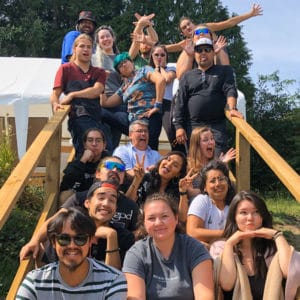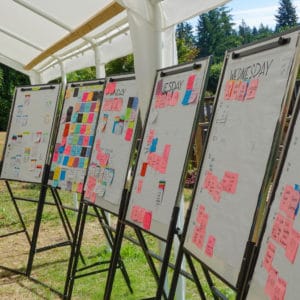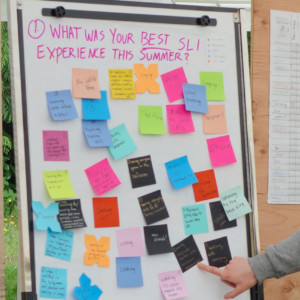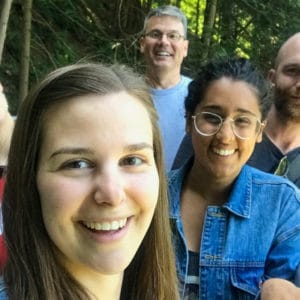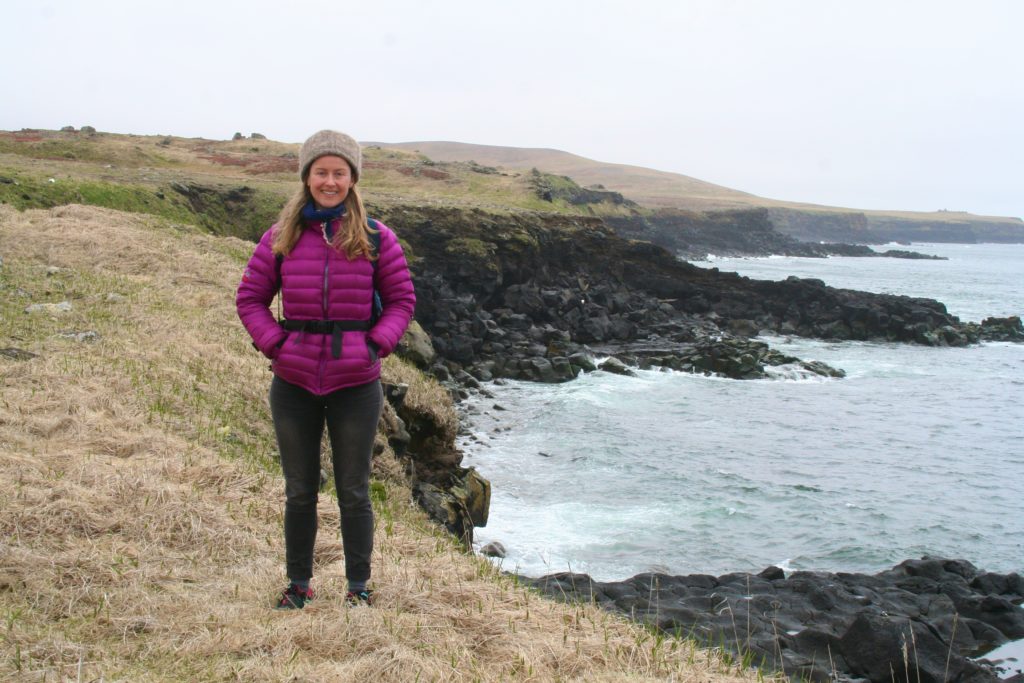
Hi! I’m from Vancouver, British Columbia, and I have worked in language education for about ten years, with a focus on English for newcomers to Canada and one-to-one language exchange programs.
Just over a year ago, I heard the poet Lee Maracle joke about the absence of a good naturalization process to teach non-indigenous folks in our region how to be good Coast Salish people. My parents are the descendants of settlers from England, and I have spent many years living abroad or traveling abroad – with big chunks in Saudi Arabia, Morocco, Turkey, Ecuador, and California – exposed to the neat things I can do or access, but without much focus on my responsibilities to a place.
After Lee Maracle’s words, I started wondering: What does it mean to be responsible to a place? How can I become a better person on Coast Salish land? Could it be connected to my existing interest in language education?
Thanks to Tsleil-Waututh’s language department director, Gabriel George, and others in the community language program, including Nicki Benson, in fall 2016 I was able to start learning hən̓q̓əmin̓əm̓ every week. There I learned some WAYK techniques. Instead of reading, writing, and doing homework, we spoke language around a table, went outside to point at rocks, called to each other “come!” and “go!”, heard stories from people of different ages, and threw our arms in the air when when we made mistakes.
When this opportunity came up to spend three whole months learning the methodology of WAYK, I knew I had to apply. I have taken three years away from language education–with the exception of starting and running Language Partners BC–to work for the environment and democracy organization Dogwood, and then for the BC New Democratic Party leading into the provincial election. I feel myself pivoting back toward language education, with an additional pivot to indigenous languages.
I didn’t have time to think about it before I came, but while walking out on the peninsula near town here on St. Paul Island, on the soft volcanic ground covered in grass, amidst white whale bones and the calls of fur seals on the rocks, I was overcome with gratitude for this experience. I look forward to learning from Evan and Susanna, my fellow visiting teammates, and the local team members, some of whom have been working on revitalizing their language, Unangam Tunuu, for years already. I am not sure what the future holds for me, but I sense that these techniques and experiences will be very valuable, both to develop and to share.
Post authored by Mary.

